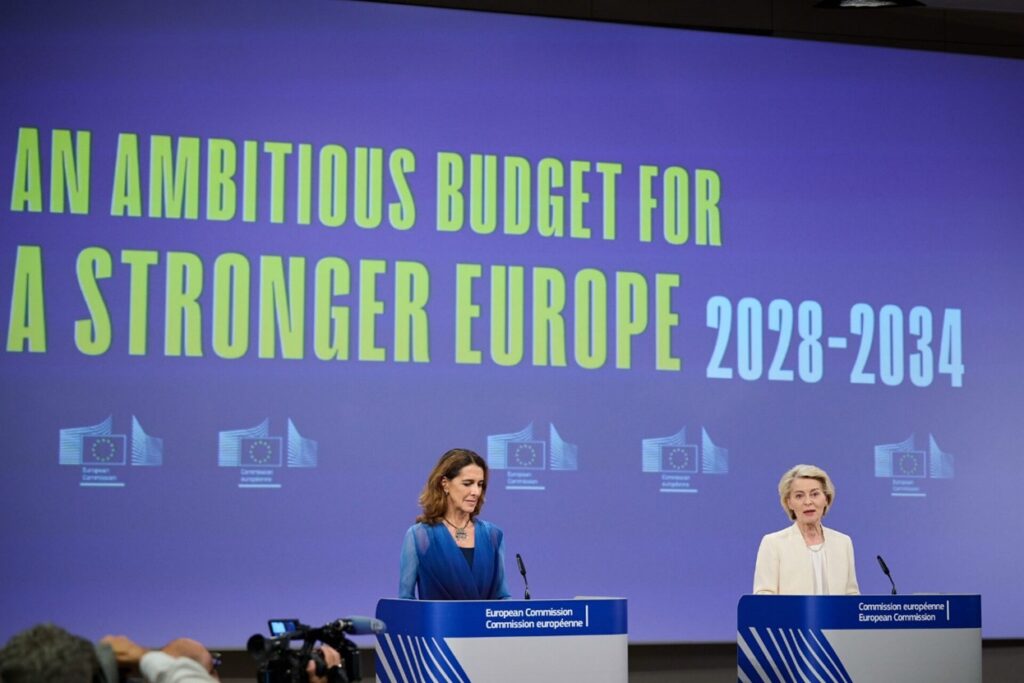Brussels, 16 July 2025 – The European Commission (EC) published its long-awaited proposal for a EUR 2 trillion Multi-Annual Financial Framework (MFF) for 2028-2034. Electricity grids are included as a sector to receive funding under the new National and Regional Partnership Plans (NRPPs), the European Competitiveness Fund (ECF) and the Connecting Europe Facility – Energy (CEF-E).
The relevance of electricity grids for the EU’s decarbonisation, competitiveness and energy security are increasingly recognised, as well as the need for significant investment in European grid infrastructure. Ahead of the publication of the Grids Package by the end of the 2025, the MFF proposal sets provisions on how the EU intends to address the grid investment challenge. While grids are identified among the sectors eligible for funding to enhance the EU’s competitiveness and resilience, the focus remains essentially on cross-border infrastructure.
The new ECF includes grids as potential recipients. This new instrument was first announced in the Competitiveness Compass and gathers a budget of EUR 450 billion. The ECF will work in synergy with the Horizon Europe program (increased to EUR 175 billion) and mobilise private and public investment to enhance the EU’s preparedness, resilience and strategic autonomy in key sectors, technologies and infrastructure. Specifically for grids, it is announced to contribute to investing in the protection and resilience of critical infrastructure, including investment in cybersecurity and national energy transmission and distribution networks.
The Connecting Europe Facility (CEF) is preserved and increased but the focus remains on cross-board interconnections. The CEF-E is maintained under the new MFF with a budget increase fivefold of almost EUR 30 billion in an effort to lower energy costs for industry and households. Funding rules and requirements are streamlined and simplified to reduce administrative burden for recipients. However, the proposal does not foresee a specific earmarking of nationally distributed funds such as the Cohesion or Regional Funds for electricity grids. Thus, it will depend on Member States’ national priorities written down in their NRPPs if DSOs will be eligible for these funds or not. Here clearer objectives from the EC regarding DSOs, which should be fulfilled in the NRPPs, would have been beneficial.
Furthermore, the number of funding programmes will be reduced from 52 to 16 and access via one single digital portal shall simplify the application process, especially for small- and medium-sized enterprises. Moreover, a financial contribution for EU companies has been included in the latest EU-own resources proposal. The newly introduced “Corporate Resource for Europe (CORE)” would consist of an annual lump-sum contribution by large companies operating and selling in the EU with an annual net turnover exceeding EUR 100 million and could affect some DSOs.
For more about DSO Entity’s recommendations for addressing the funding challenge in distribution grids, read DSO Entity publication available here.


